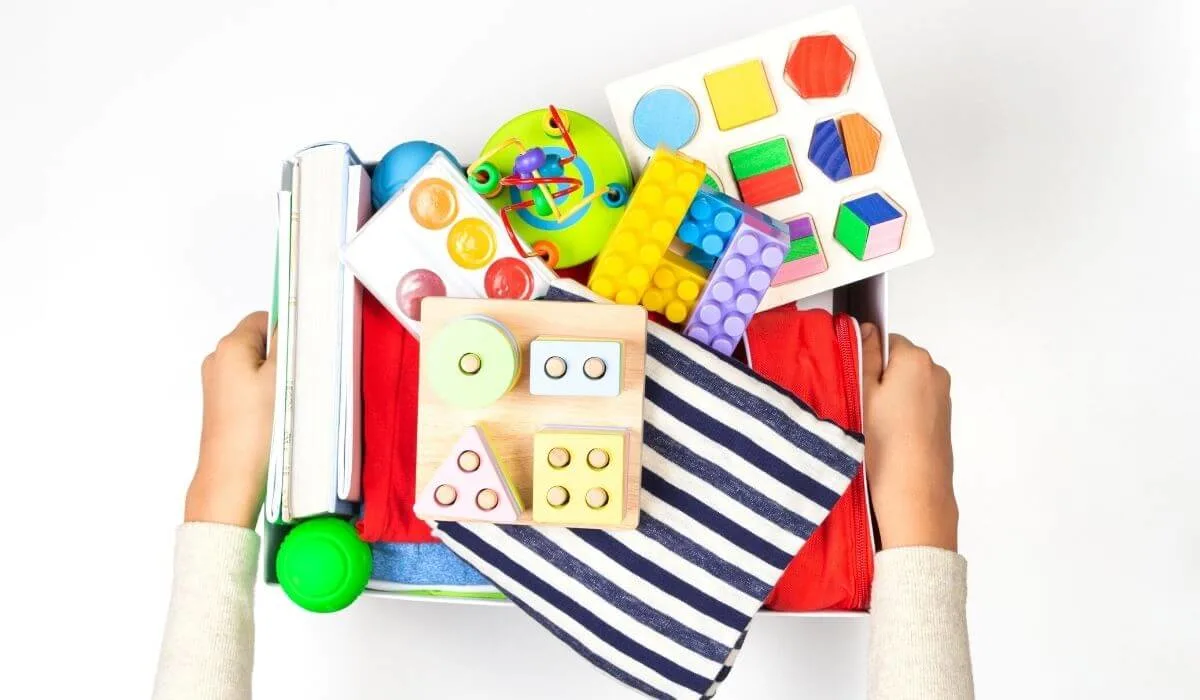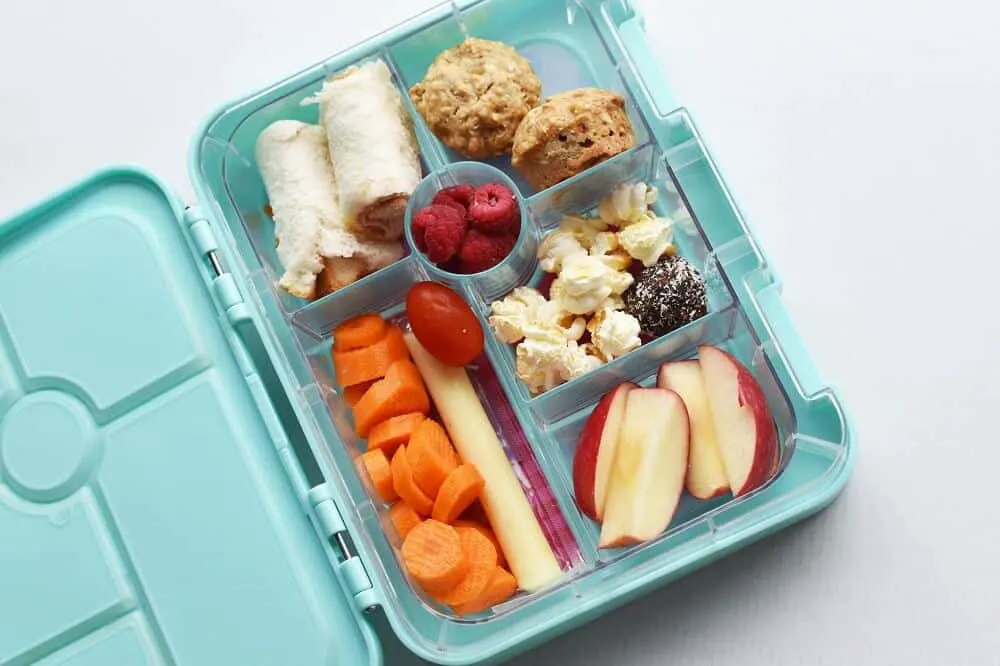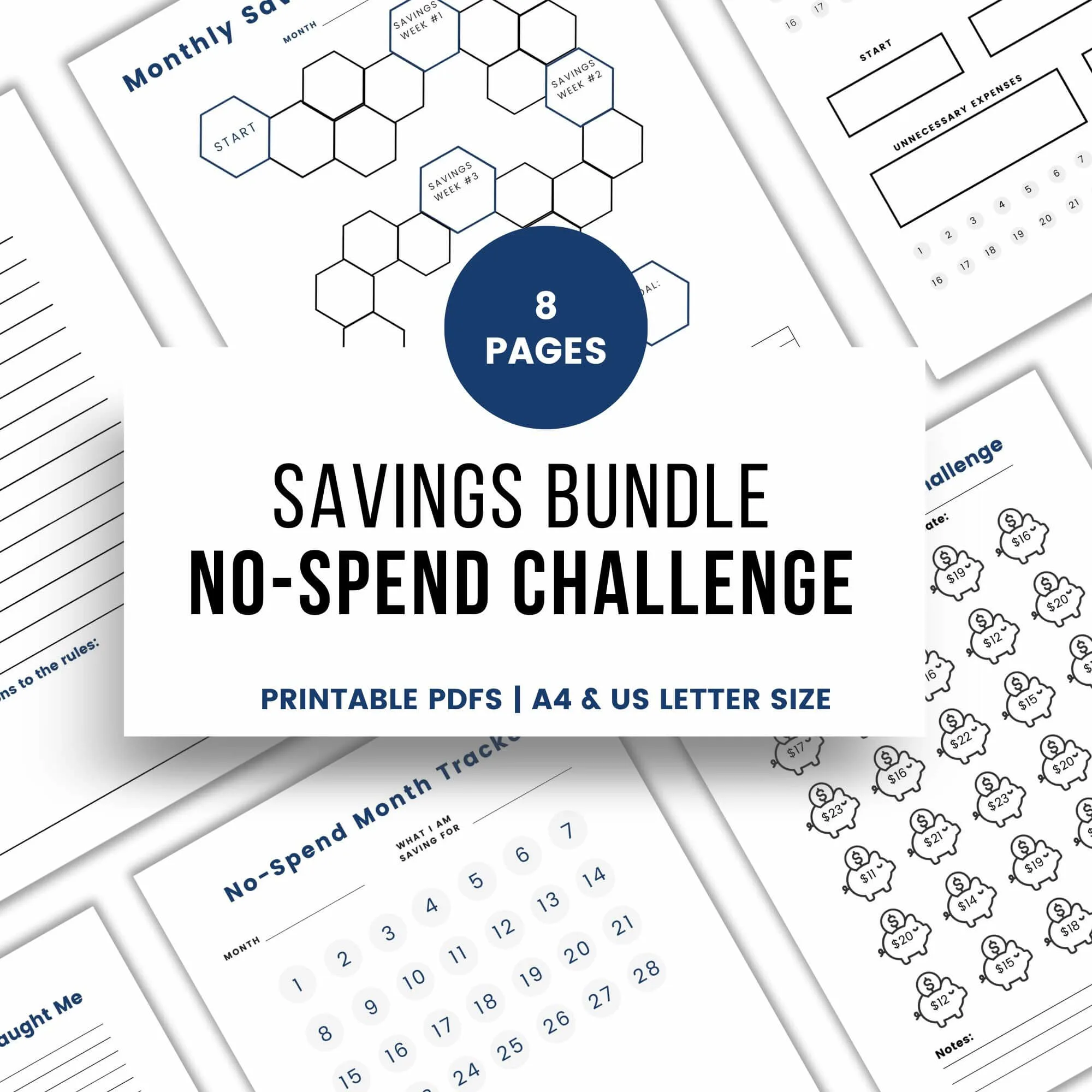What are the best things to stop buying to save money? This list will give you loads of ideas of things you can avoid spending money on. Some of these might seem necessary, but in truth, there’s a free alternative.
There are also plenty of things you likely hadn’t considered too, that will help you save for that big goal or boost your emergency fund quicker. Let’s start building those good spending habits.

Things To Stop Buying to Save You Money Each Month
There are so many clever ways to save money which is super important when you’re currently on a tight budget.
But even when you’re not, buying less can have plenty of positive impacts in your life beyond just having more money.
The less you buy means the less you have to organise, clean and store in your home.
Goodbye, excess clutter!
Let’s face it, having less ‘stuff’ can help make your space feel so much more calming. That is a huge plus for Team ‘spend vs save’.
Let’s get into the best ways to save money by cutting some of the unnecessary things out of your shopping list!
1. Bottled Water
Starting with an easy one that will save you tons of money is to stop spending money on bottled water. Not only is using reusable water bottles better for the environment, but it’s also better for your finances too.
Invest in a great quality drink reusable water bottle that you carry with you in your handbag or on your desk and for use at home.
2. Paper Towels
Paper towels are convenient for cleaning quick spills or wiping benches but using disposable paper towels is an expense that adds up over time.
Paper towel might not seem like an excessive expense, but you can certainly save a little bit each year by instead using reusable cleaning cloths such as microfibre cleaning cloths to clean your benches or wipe spills.
Some people also go so far as to make their own reusable paper towels too- or unpaper towels as a thrifty alternative.
3. Gym Membership

It’s only worth it to spend money on gym membership if you go regularly. By regularly, this means enough to justify the membership fees. If not, then it’s best to cancel your gym membership and switch to home workouts instead.
These days there are so many free fitness videos and programs available online. YouTube is a wonderful resource.
Or if you find your workout better with others, get yourself an accountability buddy to start walking, running or doing yoga together.
4. Fast Food
Aside from healthy eating habits, limiting fast food and switching to a family meal plan leads to better personal finance, since making your own meals is typically more cost-effective than takeout.
If you find yourself struggling with time as the main reason that you’re turning to convenience food, try setting aside an afternoon every fortnight or month to do a bulk cook-up so you can fill the freezer with quick meals.
Having family dinner theme nights can help take the decision fatigue from meal planning too.
5. Dryer Sheets
Try DIY dryer sheets rather than actually purchasing dryer sheets. Your clothes can still be fresh and soft with the use of essential oils and cloth.
You could also opt for wool dryer balls which lessens static than dryer sheets. I have these dryer balls and they work well.
6. New Clothes

It’s hard to resist new clothes but for many of us, this can be one area where impulse spending can really kick in. It can be hard if you’re someone who likes to keep up with the latest trends.
There are a few ways to keep your wardrobe fresh without splurging a lot of money.
Consider thrifting instead of buying brand-new clothes. While you’re still spending money, you’re spending less than you would if you paid full price. You can often find some great bargains and many are brand new still.
If you’ve got friends who also want to start saving money, why not have a swap party and trade the clothes you no longer want with one another? This can be a really fun way to freshen up your clothing options without spending a cent!
7. Coffee
Skip your daily dose of takeaway coffee and make your own coffee at home instead. Skip the coffee shop visit entirely to avoid the temptation.
8. New Books
Avoid spending money on books, especially when you have a pile of unfinished ones at home. And if you’ve already read every book in your house, here are some great alternatives:
- Visit the local library to borrow books
- Swap books with friends
- Download free books in the Kindle or Apple store
- Get a subscription – if you typically spend a substantial amount on books each month, a subscription to a service such as Kindle Unlimited or Audible where you get access to a huge library of books might be a great way to reduce your spending rather than cut it completely.
I subscribe to both of these services which means I don’t have the book clutter at home (aside from a few cherished favourites I can’t part with) and each subscription costs around the same as a single book.
A great tip though is to get an annual Audible subscription during their Black Friday sale as it’s usually a HUGE saving.
9. DVDs
You don’t have to purchase DVDs anymore, primarily in this era of streaming platforms. Not buying DVDs leaves money to pay for streaming services if you’d rather re-invest it, however, there are plenty of things to watch on free-to-air television too.
10. CDS
Similar to DVDs, you can simply stream your favourite albums on various platforms like Spotify. It’s easier and less costly to access entertainment with a device connected to the internet.
While you can subscribe to a music streaming service, you can also use most of them for free with advertising between songs.
You aren’t able to download to your device so you can only listen when online, but it’s still a great way to save money if a few ads don’t bother you.

11. Expensive Phone Plans
Does your mobile phone plan suit your needs or is it excessive? A lot of us are wasting money on data plans that are way beyond what we need to be using because the idea of it sounds great!
Look at your mobile phone statements over the last 6 months and see how close to your data and usage limits you get. If you aren’t coming close, consider moving to a cheaper plan. It can mean a lot of money saved.
12. Expensive Beauty Products
Many less costly beauty products have the same effect as the expensive ones. You don’t have to base effectiveness on the product’s price. Many beauty review sites on the internet recommend dupes that can work just as well for you.
13. Lip Balm
DIY lip balms work just as well as the ones you buy in your favourite store! You can easily take off lip balm for your monthly purchases and invest in ingredients you might have at home. For instance, coconut oil you might already have in your pantry!
14. Cable TV
Reduce your cable bills by cutting off cable TV or switching to a reduced plan. Paying for channels you don’t even watch is a big waste of money and there are a lot of cheaper alternatives in the streaming domain these days if you still want more variety to watch.
15. Single-Use Plastics
Invest in party plates, reusable straws, and utensils that aren’t made out of paper or single-use plastic.
This is particularly useful if you do entertain often and find yourself buying disposable party supplies often, including plastic plates, plastic straws and plastic cups.
Quite a few years ago I invested in a set of Christmas melamine plates that we use for our Christmas entertaining on the years we host. They have well and truly earned back their value now and it’s nice to know that there’s one less thing causing landfill during a celebration.
16. Bread Crumbs (Make Your Own)
Cross off bread crumbs from your grocery list because leftover bread is a better option! Grate old and leftover bread by hand to collect your own crumbs to use on your dishes. You can even add seasonings based on your preference.
This is often a great use of the crusts that no one likes to eat (at least in this house… it’s always left in the bag).
17. Fabric Softener
For wiser financial decisions and sustainability, stop buying fabric softener from the grocery store.
There are natural fabric softener alternatives like dryer balls, baking soda, vinegar, and more that can leave your fabrics feeling softer without the high price.
18. Toxic Cleaning Products
Save the environment and your grocery budget at the same time by cutting off toxic chemicals. Stop spending money on toxic cleaning products that you can substitute with natural cleaners made of non-toxic ingredients.
These homemade cleaning supplies are made from items you can find at your grocery stores.
19. Salad Dressings
Ditch store-bought salad dressings and make your own at home! You can save money by making a stock from ingredients already available in your pantry. Having your salad dressing recipe is also a healthier option.
20. Paper Napkins
Practice sustainability by using more cloth napkins rather than paper napkins. It’s like throwing away money whenever paper napkins end up as trash. With cloth napkins, you can easily wash and use them repeatedly.
21. Cling Wrap
Cling wrap isn’t always the solution to keeping food fresh. Cover food with alternatives such as using containers with lids, bagging in reusable silicone bags, or reusable food covers (the kind that look like shower caps).
22. Overpriced Brand Names
Purchasing branded products means you’re paying for the brand. It doesn’t mean you’re paying for a superior product. You can switch to store brand and generic items that have the same quality as brand products.
23. Shredded Cheese
You don’t need another bag of shredded cheese if you can make it at home. Grate your own cheese from a block. It’s cheaper, and it’s not loaded with icky preservatives that help it maintain its shredded texture.
24. Notepads
Keeping notepads to set reminders might seem helpful but it’s also costly. Switch to digital reminders by using Google Calendar, your phone notes app or another task-tracking app.
Utilise the smart features of your device rather than purchasing and then throwing away pages from your notepad.
25. Wall Calendars
Although wall calendars can be lovely home décor, there are plenty of free digital alternatives to use these days, making them considered an unnecessary purchase.
Like notepads, you can switch to your device calendar. We use Google Calendar as a family. It is synced between each of our devices so we can add new reminders and occasions and see each others plans.
If you prefer to have a visible calendar on display, consider getting a dry-erase acrylic calendar or whiteboard calendar that you can manually add dates to and reuse.
26. Multivitamins
Skip the multivitamin and increase your whole foods intake. Unless recommended by a health care professional, you will certainly get more benefit from a nutrient-rich diet than from a supplement.
27. Bulk Purchases That Go To Waste
Bulk doesn’t always mean saving money, especially if you end up never using some of the items in your bulk buys! Sometimes bulk purchases result in waste and clutter.
Avoid spending too much money on hoarding items that won’t be used in the near future (or at all).
28. Decorative Items
No matter how pretty decorative items are, resisting the urge to take a spontaneous shopping trip to add to your home decor is something that can definitely help you save a load of cash!
This includes sale items – just because they are pretty, does not mean you need them!
If you’re an avid online shopper, consider unsubscribing from store emails to resist the temptation of adding sale items to your shopping cart.
If you really are in need of a little something new for your space, head to thrift stores for cheaper alternatives or do a little hacking instead, giving something old a makeover!
29. Pet Toys
Your fur child doesn’t need a box full of pet toys! Have you seen how much fun a cat has with a cardboard box or a ball of scrunched-up paper? Or how your dog will play fetch for an hour with the random stick you found at the park?
A nice alternative would be DIY toys made from scratch such as t-shirt rope toys for your dog.
And as a cat mum myself, I have certainly purchased a few duds over the years thinking the cats would love them, and they couldn’t care less!
30. Greeting Cards
Handwritten letters are more heartfelt and genuine than purchasing greeting cards. Although greeting cards seem cheap, buying them for every birthday, wedding, and other occasion makes it costly.
If you really want to gift cards, switch to handmade cards.
My Cricut Joy is my favourite way to make cards these days but we also make them by hand using all the old scrapbooking supplies I collected over the years. The kids love making cards.
31. Tech Upgrades
If your current phone, laptop, or other device is still faultless, these unnecessary tech upgrades are categorised as impulse purchases. You don’t need to spend money on the latest model when your device is still doing fine.
32. Streaming Services
Signing up for subscription services can be fun especially when every streaming platform offers a wide range of entertainment. However, these platforms can add up to a lot of money if you’re subscribing to more than one.
If you can’t imagine life without streaming, focus on one at a time, cancelling before you subscribe to a different service. This way you can cut your costs and enjoy a different variety of entertainment each time you switch.
And don’t forget that most free-to-air TV channels now have their own catch-up television shows and films to watch, along with smart TV channels that are completely free of charge.
33. Salon Beauty Treatments
Salong beauty treatments are certainly a splurge and they are a wonderful way to treat ourselves to a little self-care. But they are expensive. Very expensive.
Consider switching some of your services to DIY options, such as facials you can do at home, tinting your own eyelashes and eyebrows, waxing your own legs or brows or convincing your partner to offer you a relaxing massage on date night.
34. Subscriptions
Subscription services for beauty products, meal plans, prepackaged food, magazines, newspapers and apps can take a toll on your savings. The many different subscriptions and memberships seem small individually, but combined they are often a hefty expense.
Especially when you forget to cancel them.
It’s essential to cut off spending on the services you aren’t using. Do this the next time you do a digital declutter.
35. Lottery Tickets
The idea of winning the lottery is truly tempting but going overboard can be an unhealthy spending habit. Buying lottery tickets on a regular basis doesn’t guarantee that you’ll win and is usually detrimental to your financial goals.
If you’re finding this hard to let go, work out approximately how much money you have spent on lottery tickets in the last 3 months and see how you feel about this number.
What could you have done with this money instead?
36. Brand Name Medication
The FDA has clarified that both generic and brand-name medications have the same effect and risks. That’s why, unless advised otherwise by your healthcare professional, switching to generic products can be a quick way to cut back on your health expenses.
37. Toys

Your kids will likely freak out if you tell them you’re not buying toys anymore! This doesn’t mean no more fun. But what it does mean is encouraging you to consider what you already own and what your child really does enjoy playing with at their current age.
Kids outgrow toys so quickly as they grow up and it can be expensive to keep up with their ever-changing interests.
Instead of always buying toys for special occasions, consider useful gifts for kids that are still enjoyable.
Encourage your kids to set their own goals and use their own money to buy the toys they feel like they must have.
They can sell the toys they no longer want and buy items they do want second-hand from an online marketplace too. This is an instant way to save a bucket load of cash.
38. Colouring Books
Buying colouring books has plenty of benefits for kids since it encourages their creativity and it’s also a wonderful mindfulness activity for children, but consider how many unfinished colouring books you might have sitting in your home.
Instead of getting new colouring-in books, consider printing a page or two at a time for them to colour. This way you’re storing less and also spending less.
Plus there are so many awesome free colouring pages available on the internet.
39. Mani/Pedi
Receiving professional mani/pedi service is expensive and can heavily impact your monthly budget.
Make it a habit to only go for mani/pedi services when there’s an important occasion and switch to doing your own DIY manicures and pedicures at home.
40. Restaurant Meals
Frequent restaurant visits are a spending habit that can add a lot to your monthly leisure budget. Yes, restaurant meals are a special treat and we all love having someone else cook for us sometimes, but it’s rarely an essential expense.
Preparing a weekly meal plan is a better solution and much more sustainable, saving the splurge dining out experiences for special occasions and date nights.
41. Pre-Packaged Food
Your grocery shopping bill will quickly add up if you are purchasing a lot of pre-packaged food.
Yes, they are super convenient, but the price tag is typically much higher than creating the meals yourself or prepping the pre-packaged ingredients.
These include things such as microwave meals, salad mixes, and pre-cut vegetables.
42. Impulse Buys
Impulse purchases are something we all have at times and there’s a good chance you will have plenty more of these moments in your future. But there are a few ways to help you stop buying items on impulse when you are trying to keep your spending in check.
That’s why it’s best to uninstall online shopping apps and unsubscribe to newsletters that can tempt you to impulsively spend money on clothes, shoes, food, etc.
Always ask yourself – do I really need this? In fact, these decluttering questions have a few that might help you stay focused when it comes to impulsive spending.
If you’re still finding this a difficult habit to break, try a no-spend challenge month to see if you can stay on track.
43. Candles
Yes, scented candles are lovely but gosh they can be expensive! Switch to something more cost-effective such as an oil diffuser and essential oils.
44. Seasoning Mix
Aside from unhealthy additives such as sodium and refined oils, a seasoning mix is something you can make yourself at home.
You can make a homemade seasoning mix with actual spices available in your pantry or dried herbs from your garden.
My husband is a bit of a whizz at this. He loves smoking different meats and always creates his own meat rubs now.
45. Frosting
Store-bought frosting offers convenience but you can definitely make your frosting at home. Make it in advance for special occasions such as birthday parties, so you have it ready to go for decorating birthday cakes and cupcakes amidst a busy schedule.
46. Frozen Vegetables
Instead of buying frozen vegetables each week, why not use methods to make vegetables last longer in your fridge?
For instance, keep carrots, broccoli, and cabbage in a vegetable-saver container or use the many clever hacks that will prolong the life of your fresh produce.
You can also create your own frozen veggies from fresh produce too.
Buy in bulk from your local farmers market and cut them up to the portions you typically use. This will take you less than an hour once every month or so and you know you’re getting great quality vegetables fresh from the market to do this.
You don’t just maintain the vegetable’s freshness but also save extra money from grocery shopping.
47. Canned Soup
Nothing tastes as good as homemade soup and it really is one of the easiest things to make. There are so many delicious and easy soup recipes online to recreate your favourites at home.
Plus you can make up a big batch and freeze some individual servings for later.
My favourites to make at home are pumpkin soup and minestrone. The best thing is knowing they aren’t loaded with preservatives and a load of sodium too when you make them at home.
48. Makeup Remover
Buying makeup remover isn’t required since you can remove your make up with baby oil or coconut oil at home.
49. Feminine Hygiene Products
Feminine hygiene products are certainly expensive and also essential. But why not consider switching to a more sustainable alternative to sanitary pads and tampons?
Some women prefer using a menstrual cup that is reused each month during your cycle. Or you can get reusable period underwear.
Personally, this has been a game-changer for me. I use Modibodi, as do many of my female friends. They are so much more comfortable than worrying about disposable sanitary products and after the initial investment, they are also more cost-effective in the long term.
50. Sandwich Bags
Glass containers, reusable plastic food containers, and silicone bags are better choices than sandwich bags. Moreover, oil and sandwich condiments won’t easily leak into your child’s bag.
We use bento lunch boxes for the kids school lunches too, which means we don’t need food packaging for their school lunches anymore.

51. Disposable Nappies
Save money by switching from disposable nappies to using cloth diapers. This is a larger upfront cost but the savings over time are quite drastic compared to the money spent on disposable nappies.
Most cloth diapers are adjustable to grow with your child too.
52. Disposable Cleaning Wipes
Ditch the disposable cleaning cloths and switch to reusable options. Microfibre clothes are my favourite to use for cleaning my home, then just wash and reuse over and over.
If it’s the disinfectant component you prefer, opt for natural cleaners such as vinegar, rubbing alcohol, and lemon with your reusable clothes.
53. Annual Credit Card Fees
Not all credit cards are created equal and many have mammoth annual fees that sit on top of the debt you’ve already accumulated each year. Some also have much higher interest charges, which cost you more money!
Switch to a low-interest, no-annual-fee credit card if you can find one. These are a far better option for most people.
54. Late Payment Fees
Ensure that you keep a calendar of reminders to pay minimum repayments and bills on or before the due date. It’ll save you from paying late fees which can definitely be avoided.
As for credit card debt, you can pay for the minimum amount due especially when you can’t pay the whole sum. More importantly, avoiding late payment fees helps your credit rating.
55. Bank Fees
Bank fees can still be a bit heavy especially when you’re trying to save money. Make sure that you use your bank’s ATM or affiliated ones if possible. That way you won’t have to pay for withdrawal fees.
Also, it’s best to retain a minimum balance to avoid monthly fees. If you are doing a lot of international purchases, consider the foreign transaction fees your bank has. Some of these are hefty!
Better yet though, find a bank that has low or minimal fees so you can keep more of the money you’ve worked hard to earn!
Other Ways To Save Money At Home
Aside from things to stop buying to save money, you can make adjustments at home for more savings.
- Meal Planning – This habit helps prevent excess food waste and helps you refrain from last-minute convenience food purchases.
- One In One Out Rule – Every time you purchase a new item of clothing or a new kitchen item, for example, you declutter an item you already had.
- Home Garden – Starting a vegetable and herb garden can reduce your expenses at the grocery store!
- Create A Budget – Know your weekly and monthly expenses. Keep track of extra spending and use this to help you identify where all your money is going. There are many apps you can use, a spreadsheet or printable budget sheets.
- Audit Your Expenses – Shop around for better rates for home utilities such as electricity, or insurance products to reduce your premiums. You can also ask your bank to consider reducing your home loan interest rate as a loyalty bonus or consider refinancing for a better rate.
- Do A Challenge – A 30-day no-spend challenge is a great way to kickstart new habits and break your spending cycle.

Final Thoughts On How To Reduce Your Spending
There are many things we can each stop buying to save money at home that can have a huge impact on our personal finances. These are some of the easiest changes you can make to help you increase your savings. Can you think of any other ways you can cut down on your household spending? Read my family budgeting tips for more ideas!

